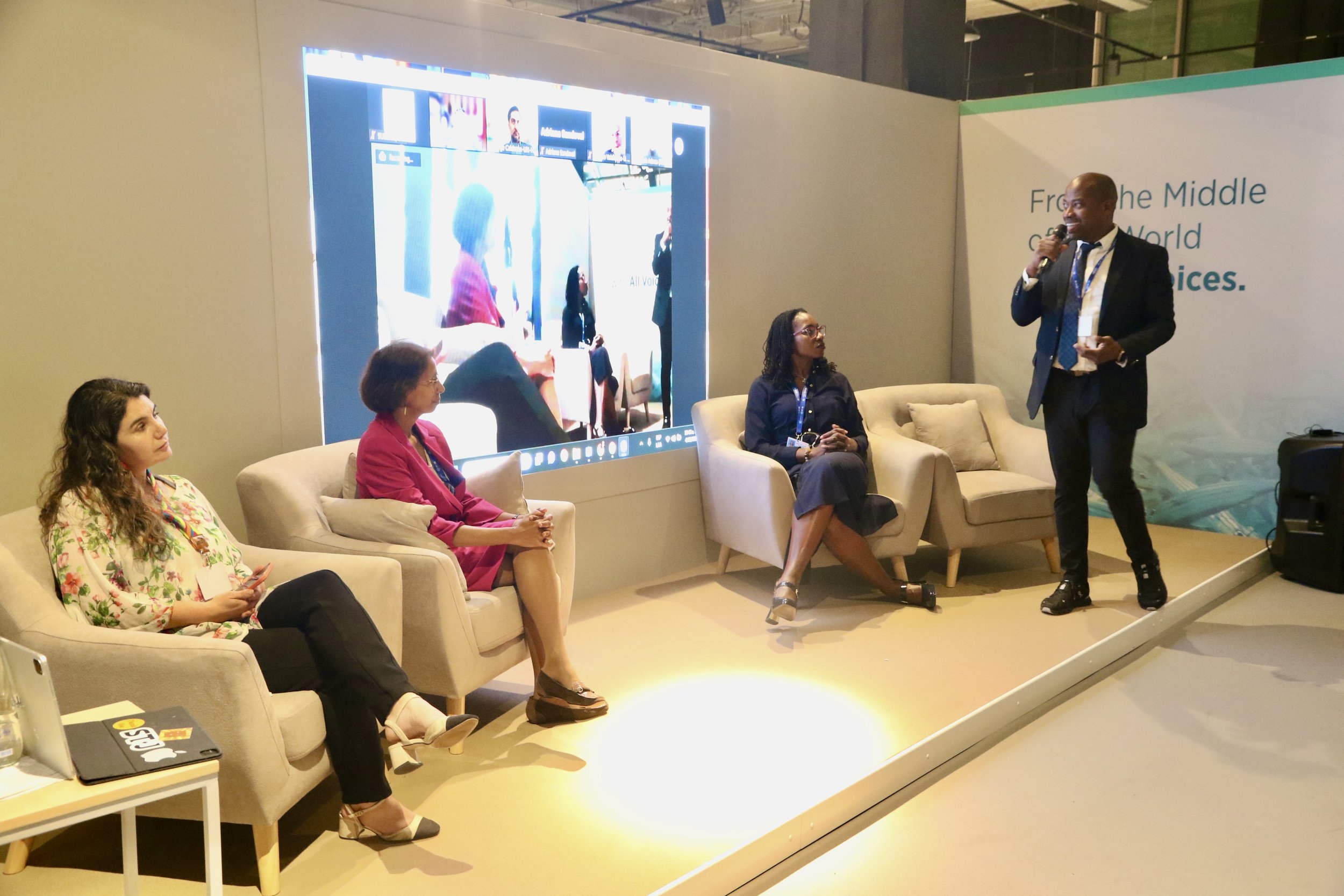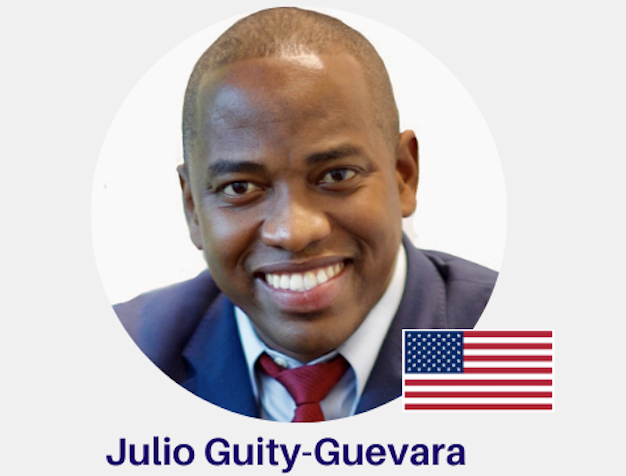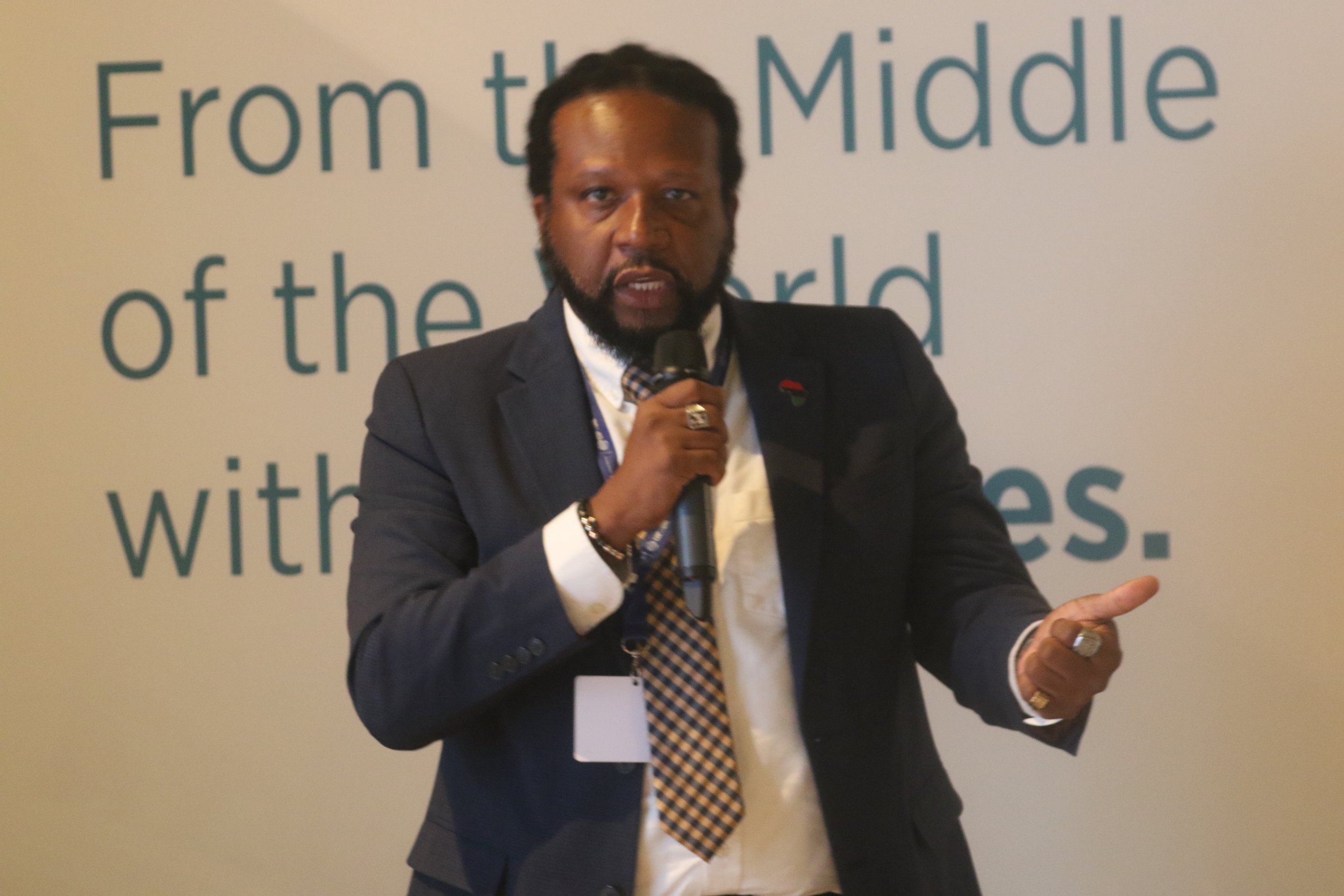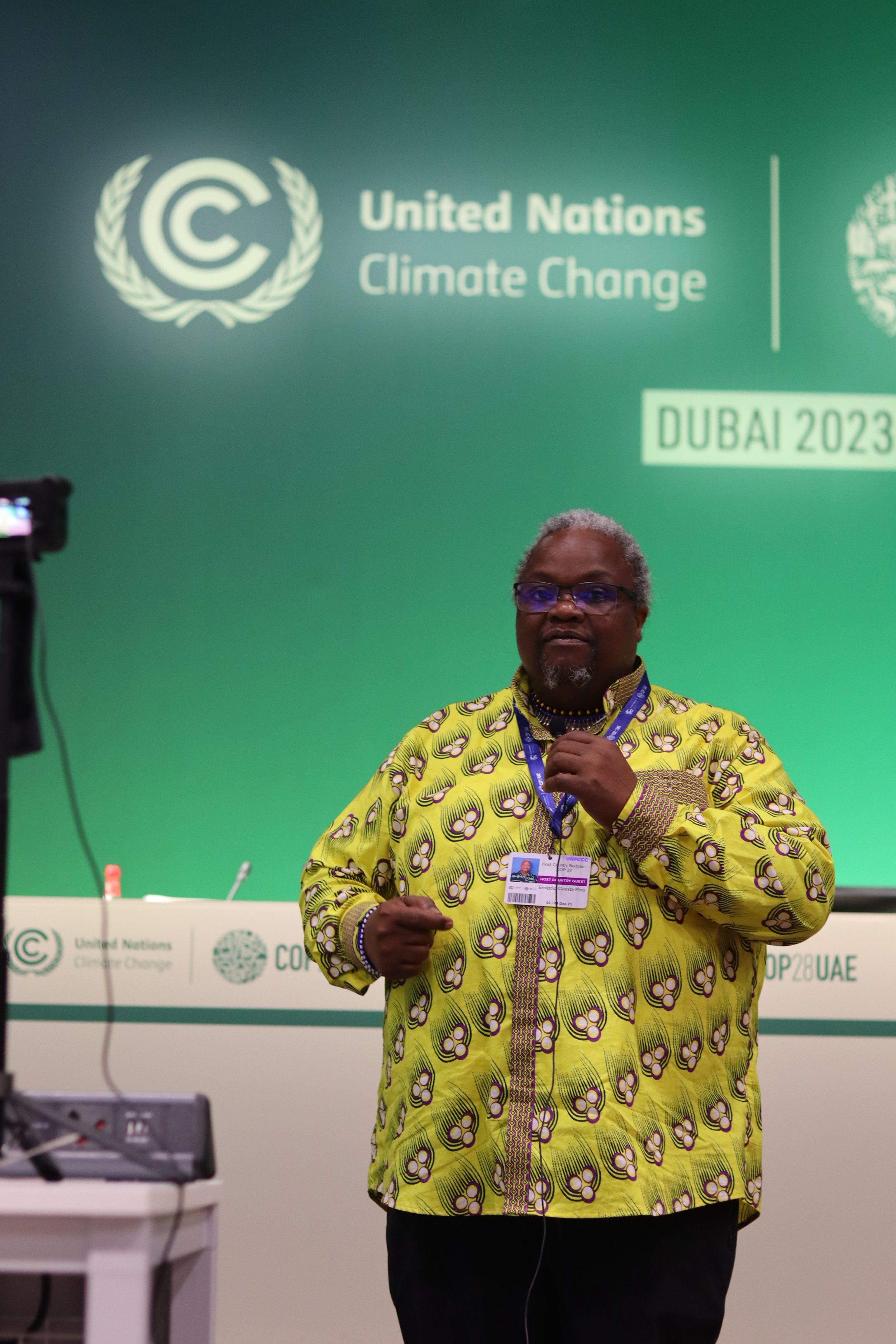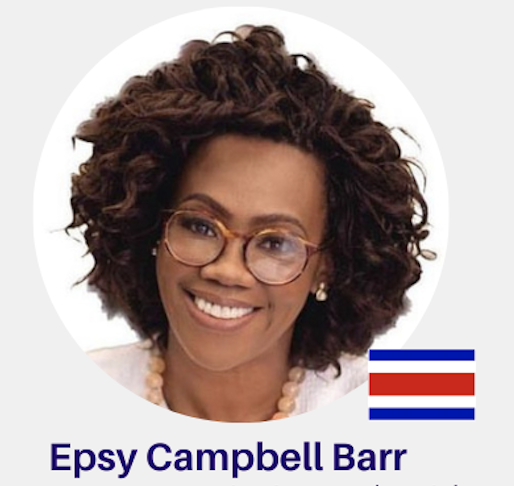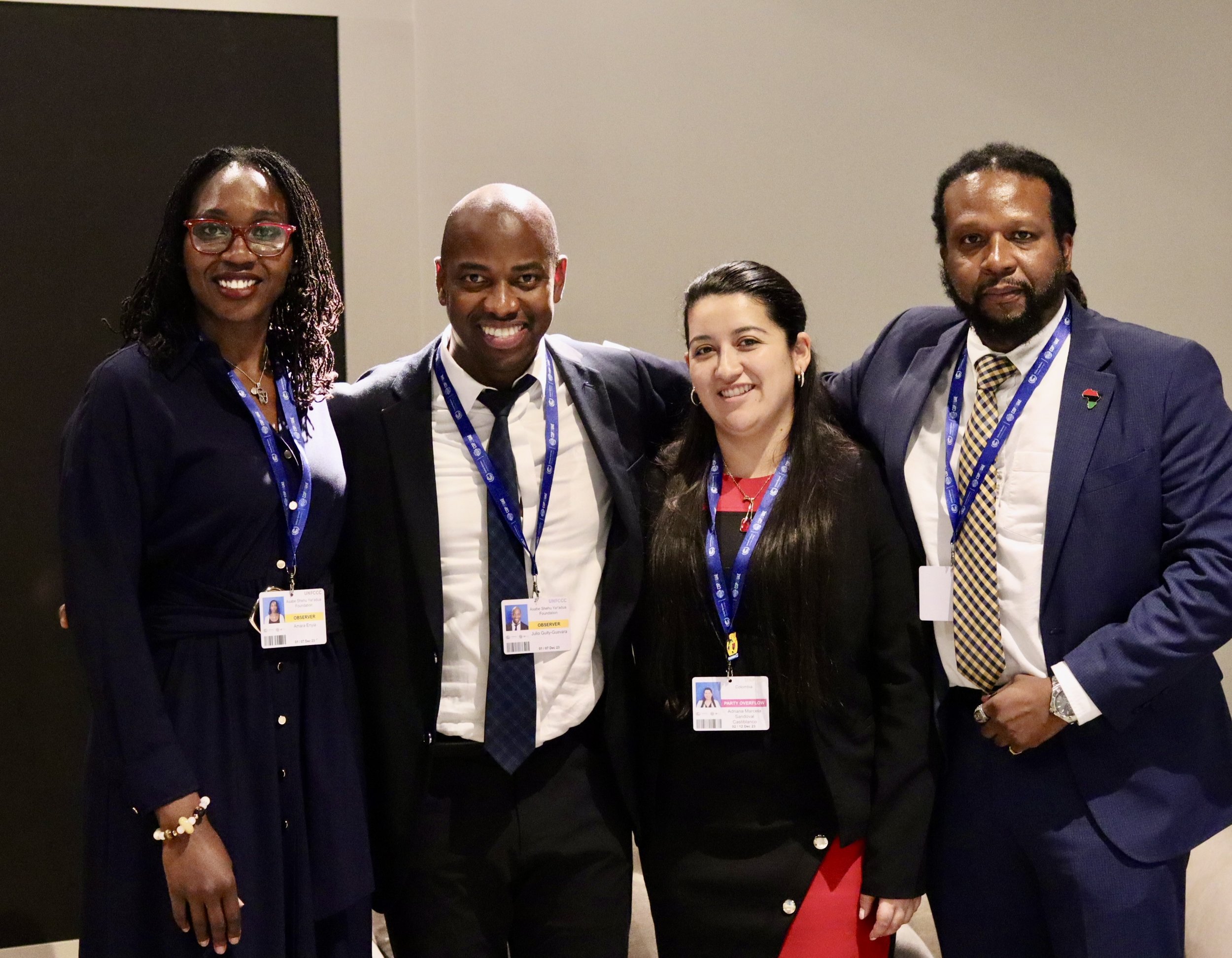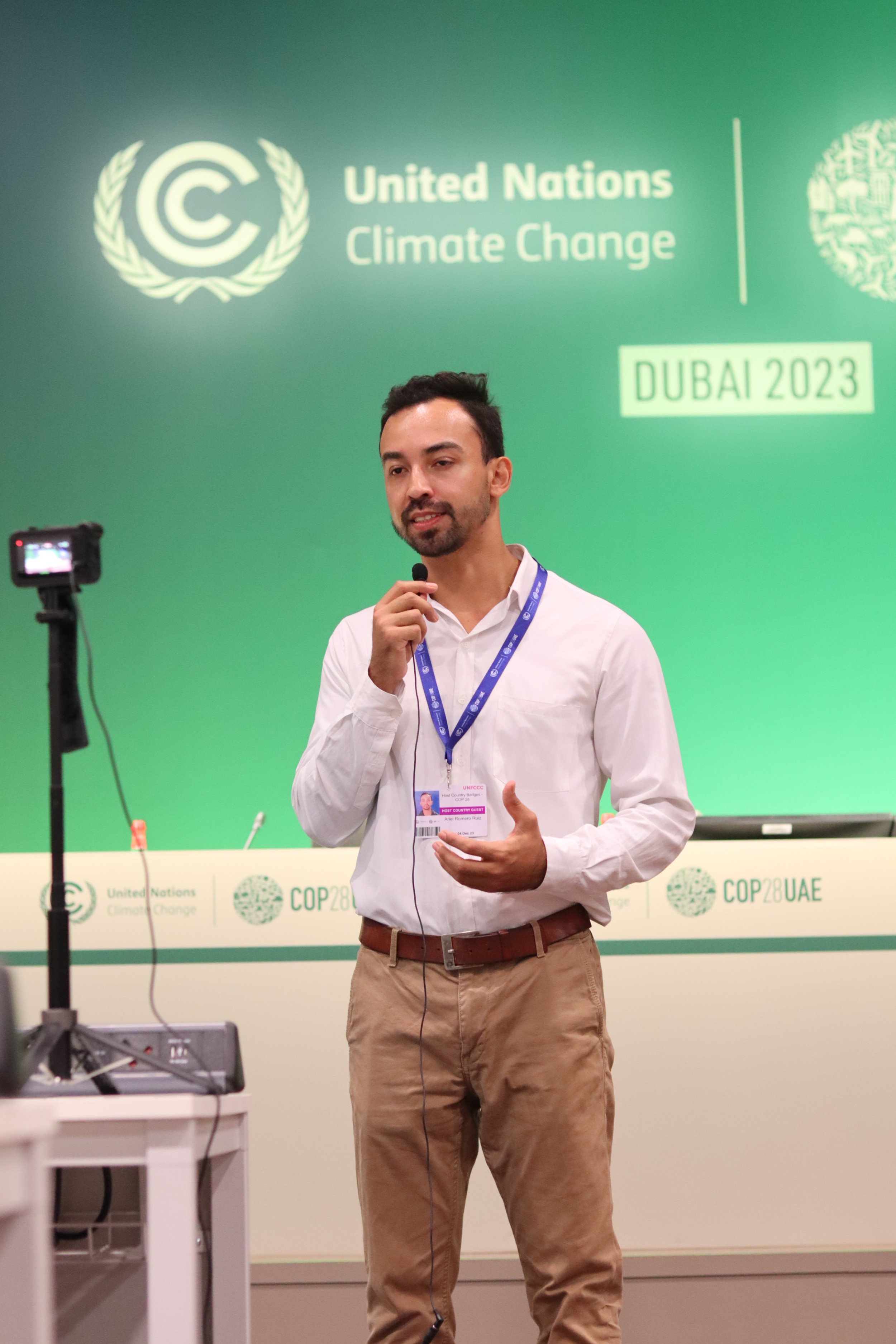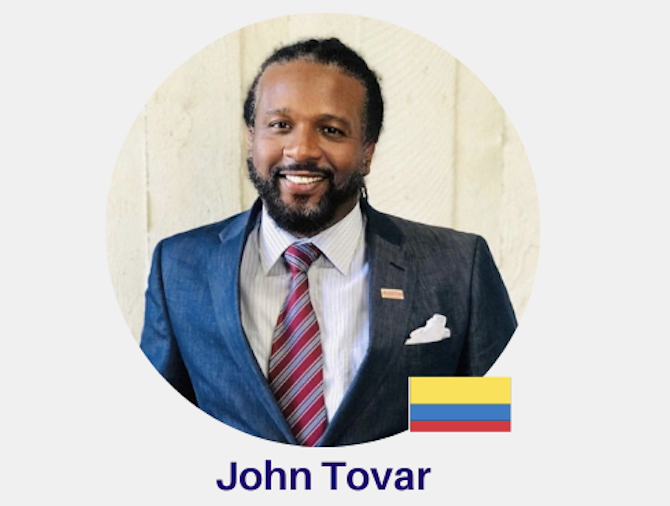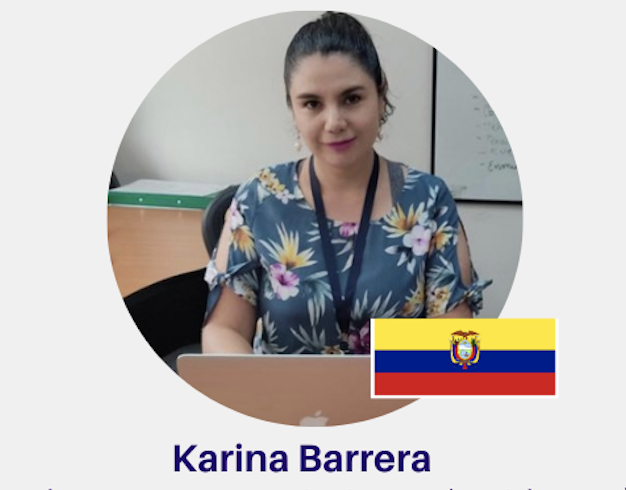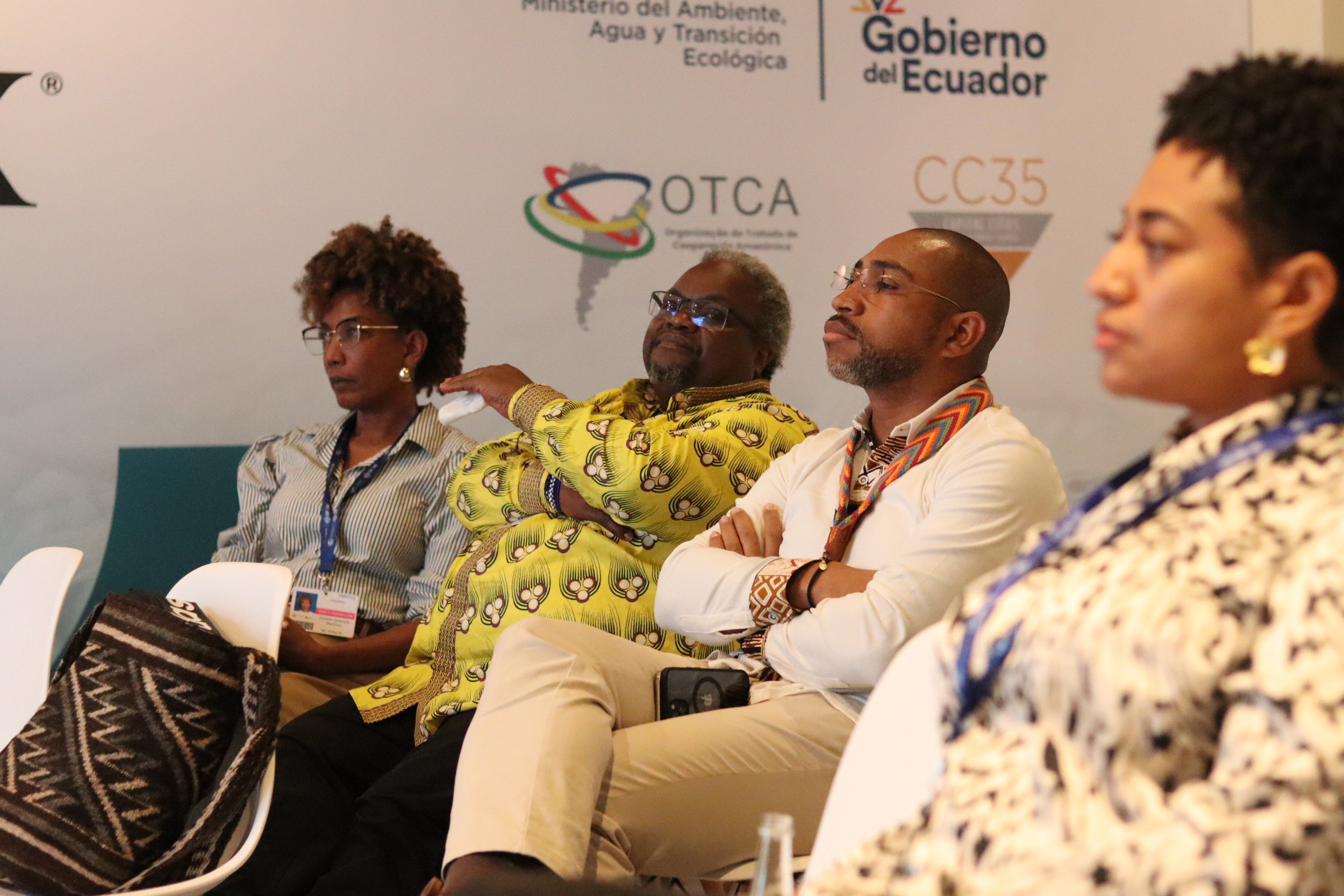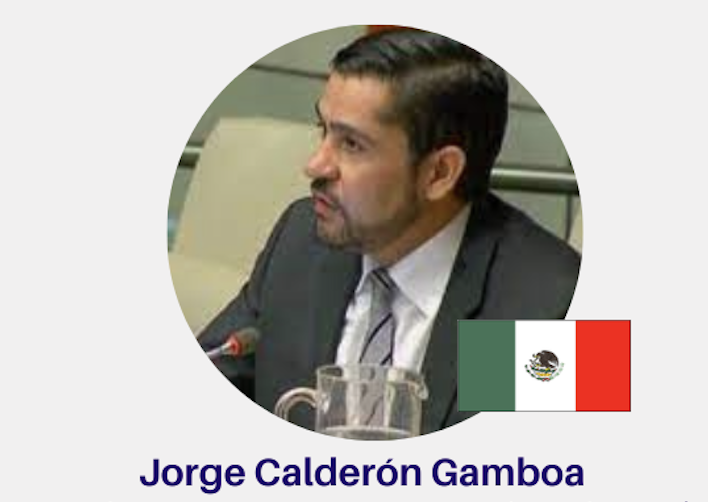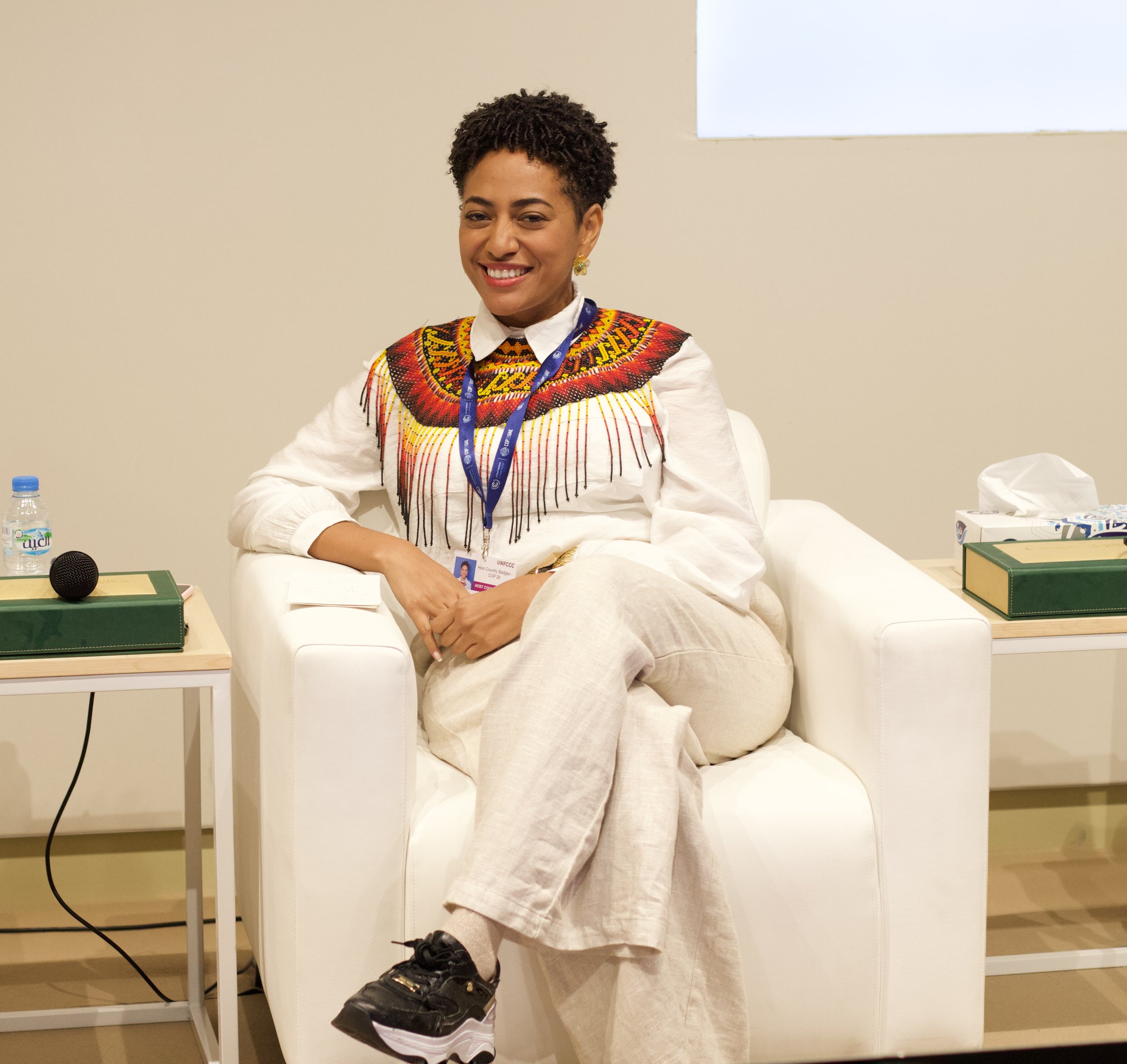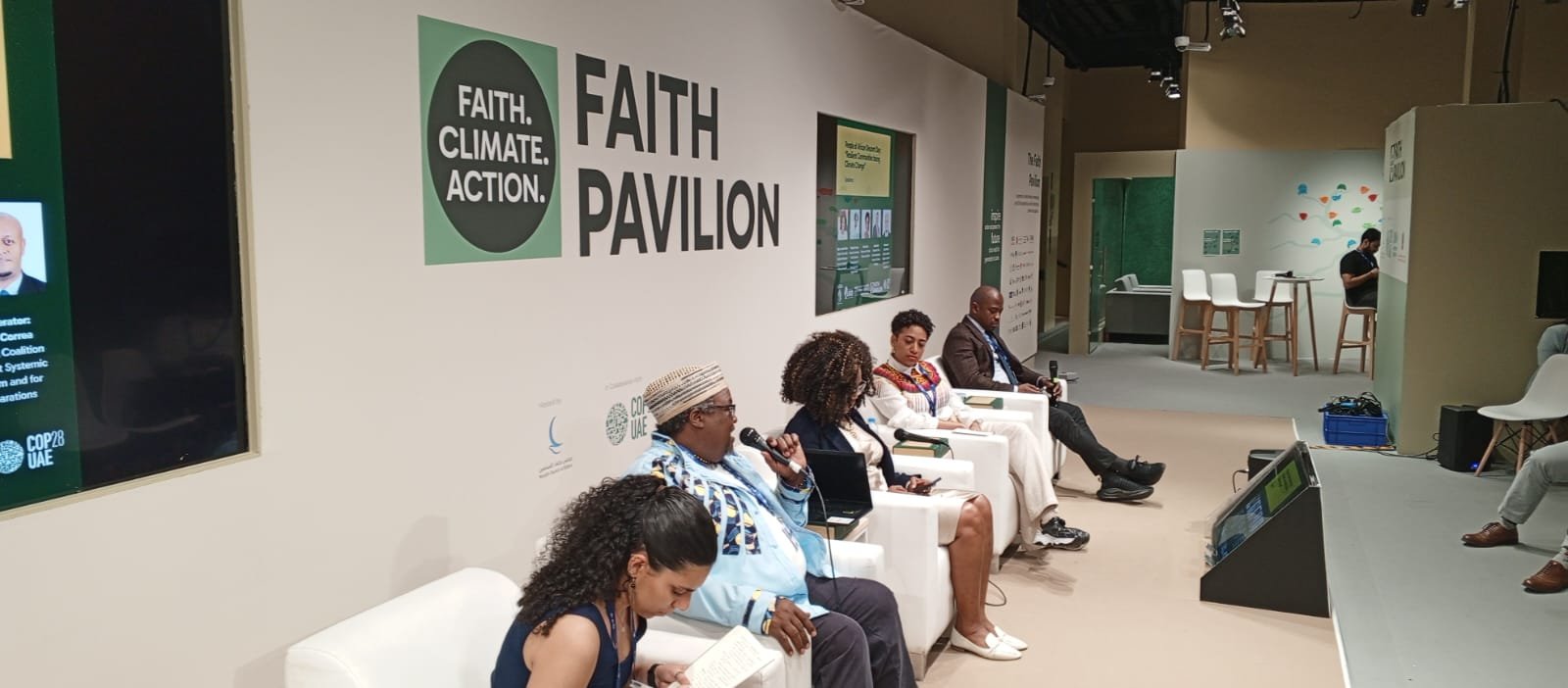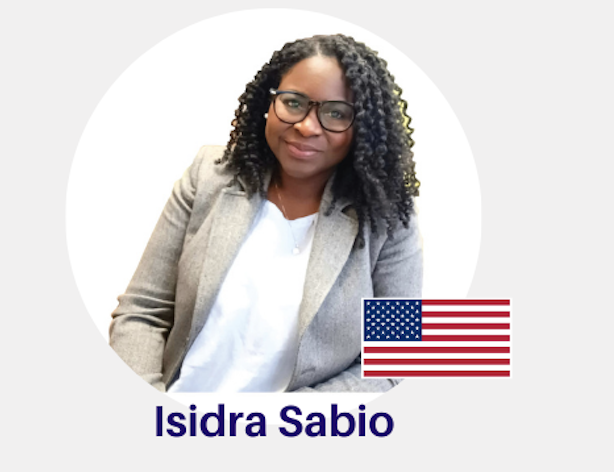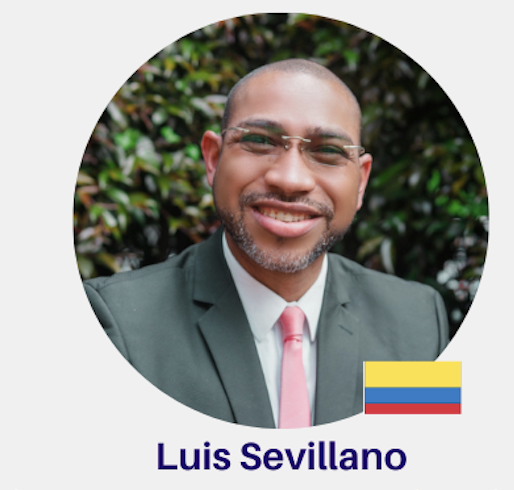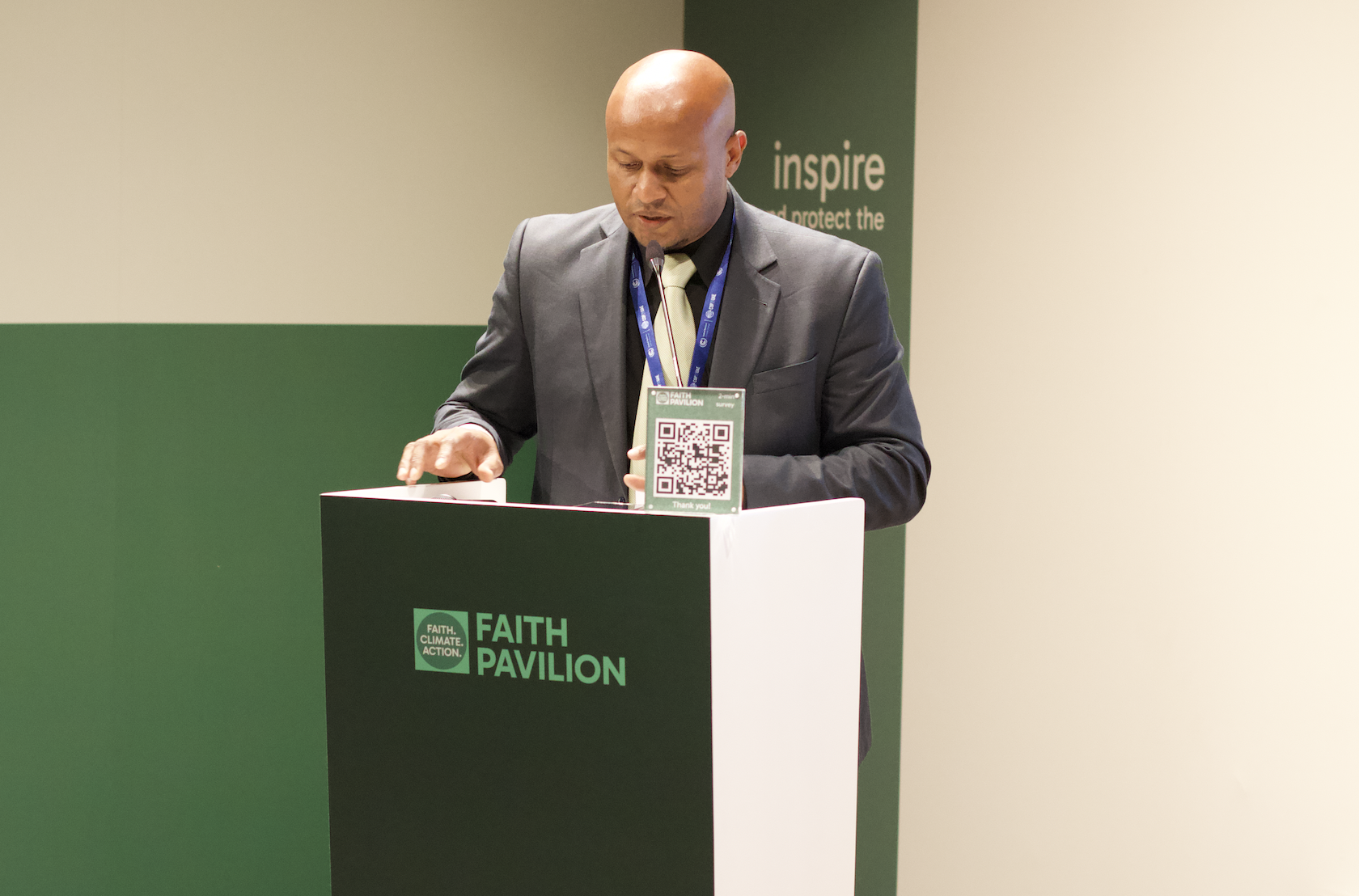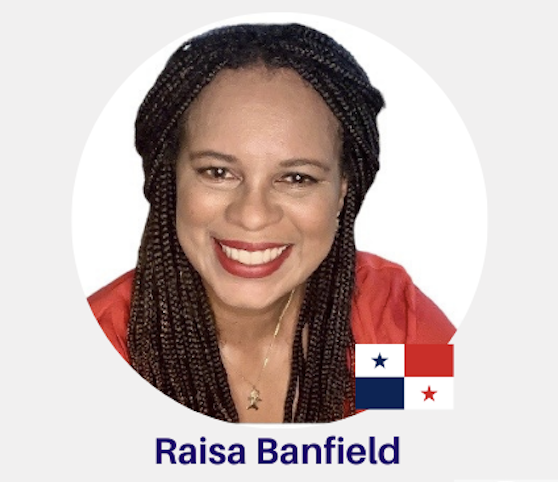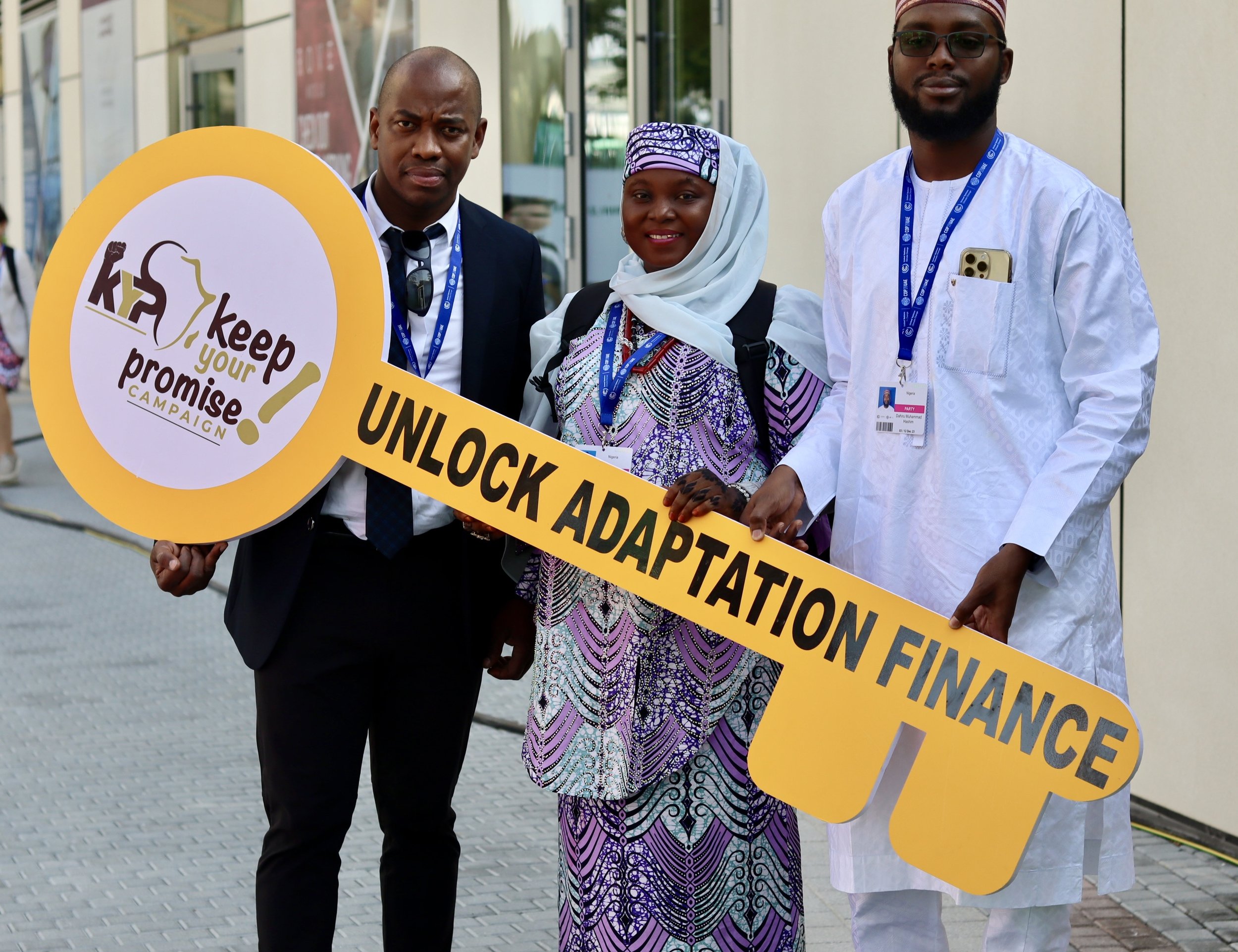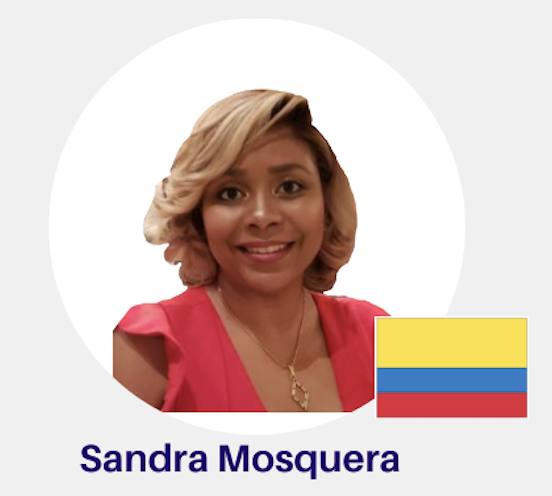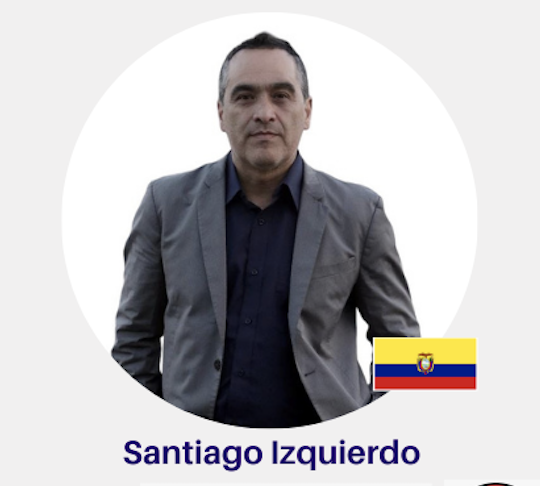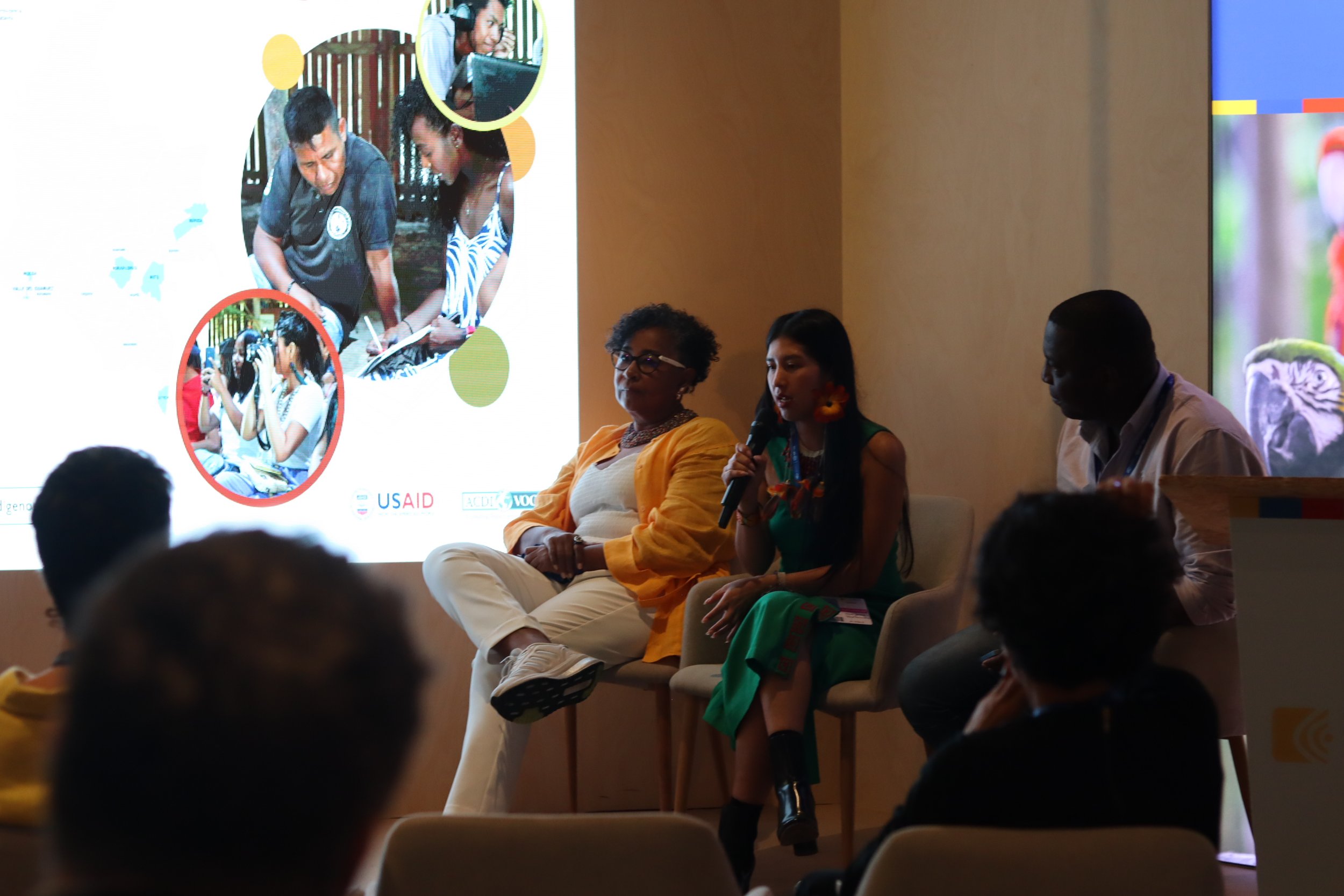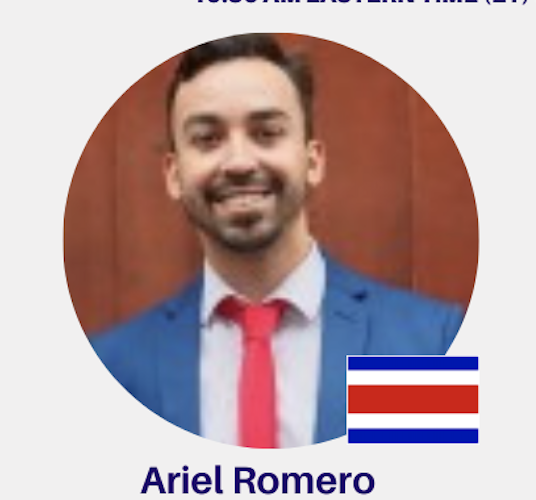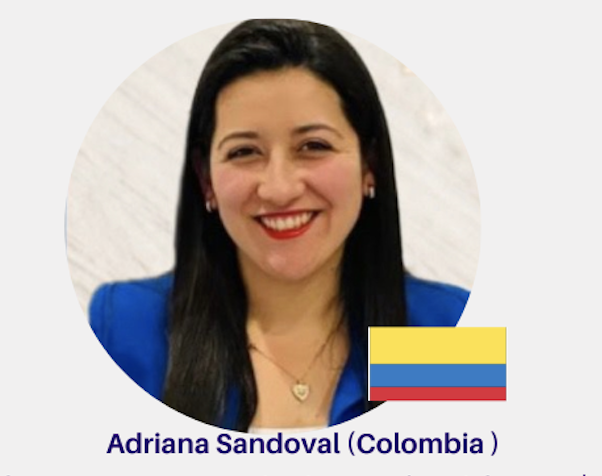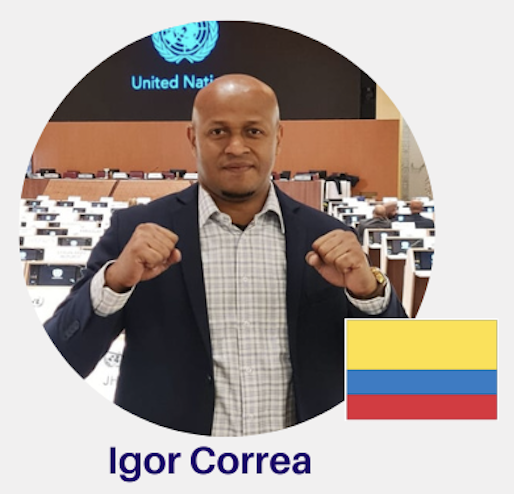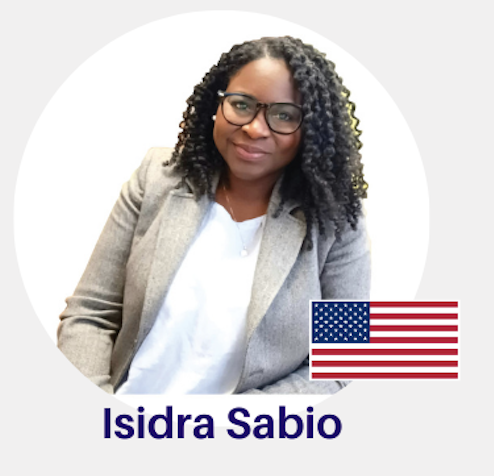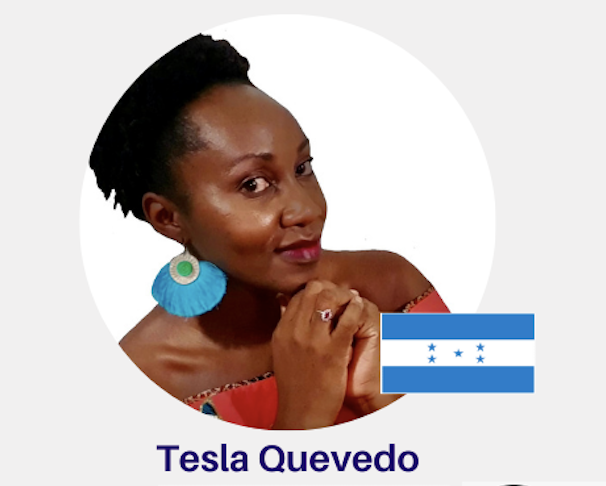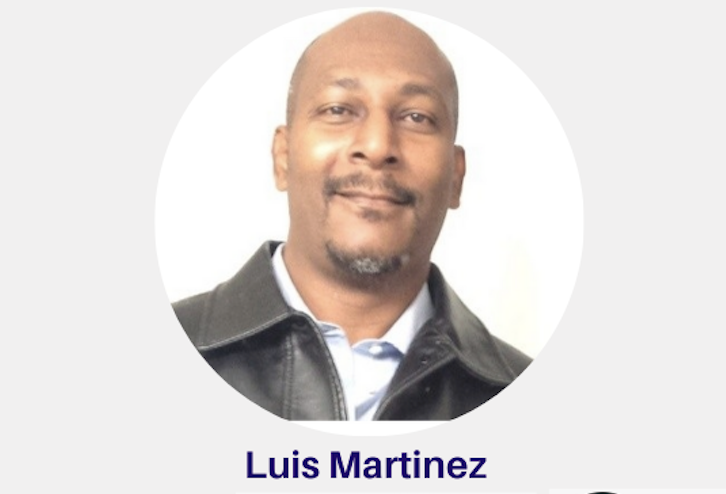The Pavilion of the government of Ecuador hosted the Roundtable Dialogue titled on “Afro-descendants at COP28 in Dubai: Embracing Sustainable, Resilient, and Equitable Programs.
“When we go back to our communities, we want to be able to share the tangible benefits of coming to COP in Dubai, Sharm El Sheikh, and Glasgow…and how these conversations affect the material conditions of our people” Dr. Amara Enyia said at the Roundtable. Dr. Enyia is a strategist and Public Policy Expert on city and state policy as well as international affairs with expertise in Africa, Latin America, and Central Asia. She is also the President of the transnational advocacy organization Global Black.
…”Under the Biden-Harris Administration, one of the very first act of this administration was to issue an Executive Order on racial equity and support underserved communities. It was an order to all federal government agencies to look at effect of public policy. And to look at those effect in a way that center racial equity. If we look at different issues, public health, education, and security there are desparate impact and it is not by accident. All of us are called to start measuring for the first time, to look at the data because that evidence will help us direct resources” said Ms. Bama Athreya at the Roundtable.
Ms. Athreya is the Deputy Assistant Administrator for the Gender Equality and Women’s Empowerment Hub and the Inclusive Development Hub in USAID’s Bureau for Inclusive Growth, Partnerships, and innovation. She is also on the Board of Directors of Green America, Advisory Board for Worker Info Exchange, affiliated as a Fellow with Just Jobs Network, and a regular contributor to Inequality.org.
COP28 Roundtable participants shared lessons learned in the implementation of climate change projects for Afro-descendants populations. They discussed the outcome of recent research on mappings, projects and investments. Participants also were able to build strategic partnerships to accelerate implementation and identify opportunities for cross-collaboration after COP28.
During the Roundtable participants reviewed and analyzed the InvestmentMap data platform as a tool that can support for transparent management of public resources for Climate: International forums like the COP28 or the G20 result in significant financial commitments being made regarding climate change actions and energy transitions – for which open platforms on public investment will be the cornerstone for the efficient and transparent utilization of these resources.
This platform provides timely and quality data that address key challenges related to gender, diversity, and climate change – and magnifies the impact of these (potentially) growing financial allocations. In fact, the call to action resulting from COP28 urges global, regional and local leaders and institutions to promote and prioritize he production of gender and environmental data in an ethical and transparent manner.
How does Latin America and the Caribbean fare on these efforts? Progress has also been made to proactively disclose disaggregated investment data at the national and subregional level, where some population groups are concentrated. Colombia was one of the first countries in the region to disclose information on public investments at the subnational level through the platform called MapaRegalias (now MapaInversiones), launched in 2014. Transparency will not only be important in Latin America and the Caribbean to provide evidence of each country’s efforts but will also be crucial to ensuring that these resources reach their intended destinations, much like the situation of natural disasters or emergency relief efforts.
Some examples of the successful implementation of the InvestmentMap platform include Argentina where users can visualizes the country's public investment projects. It also includes information on works that contribute to the mitigation and/or adaptation to climate change and that contribute to compliance with the SDGs. The platform classifies works according to their contribution to the 2030 SDGs, such as SDG 6 on water and sanitation and SDG 9 on resilient infrastructure and indirectly to SDGs of health, gender, and poverty elimination, and their contribution to climate mitigation and adaptation.
Procurement processes after Hurricane Fiona:
The Dominican Republic is incorporating in its InvestmentMap platform a section to disseminate information on what the government has spent to support areas affected by the Hurricane Fiona, which hit the country in 2022. The platform provides disaggregated information on government-led procurement processes and all contracts so they can be analyzed by citizens or control institutions. Considering that during emergencies procurement processes are rightfully shortened, transparency and accountability becomes a necessity.
Honduras now makes gender budget information publicly available to identify the public investment allocated through the general budget to reduce and eliminate the gaps between men and women, promoting greater autonomy in the economic, physical and decision-making spheres and the interrelationship between them. This effort materialized with the development of a gender budget marker methodology to identify and quantify public expenditures in the 2024 budget proposal.
H.E. Epsy Campbell Barr
First Vice President of Costa Rica (2018-2022) and current Chair of the the United Nations Permanent Forum on People of African Descent also led these COP28 efforts to mobilize resources to implement a programmatic agenda for local populations will facilitate the implementation of projects and programs at the regional level.
The Roundtable also examined the progress made by Afro-descendant delegations after the 2023 Africa Climate Summit, the 2023 First Cities Summit of the Americas in Denver, Colorado, the 26th and 27th U.N. Climate Conference (COP26 and COP27) in Glasgow, UK and Sharm El-Sheikh, Egypt respectively, and the 2022 Ninth Summit of the Americas in Los Angeles and the recent Summit for a New Global Financing Pact in Paris.
These events were powered by the Sustainable Development and Climate Change Organization (SUDECC, Inc.), Global Black, Global Coalition against Systemic Racism, COPAFRO, the Central American Black Organization (ONECA), along with other members of the Afro-Interamerican Forum on Climate Change, non-governmental organizations, the academic community, private sector, government agencies, multilateral development agencies and other stakeholders.
